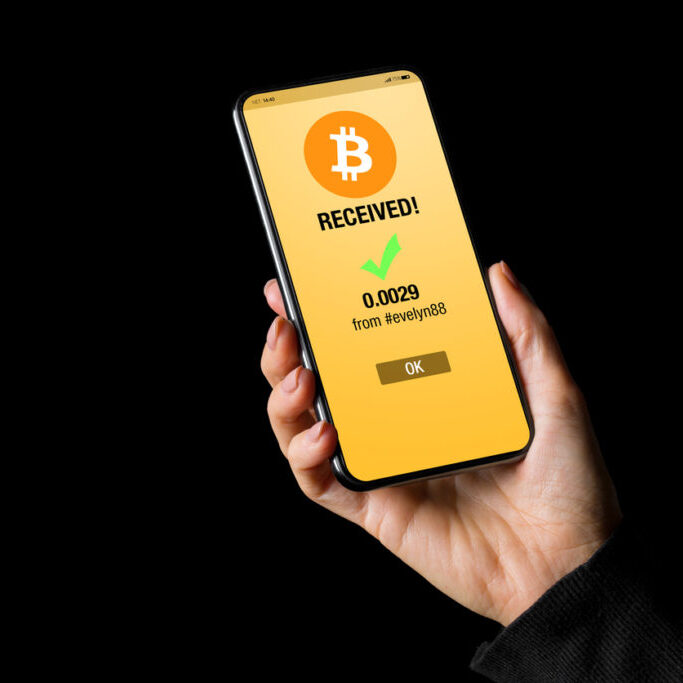Insights < BACK TO ALL INSIGHTS
Law Firms Champing at the Bit(coin)
Law Firms Champing at the Bit(coin)
By: James Trusty
Cryptocurrencies, such as the industry leaders Bitcoin and Ethereum, appear to be on the slow march towards popular acceptance as legitimate means of payment. As evidence of both legitimacy and the sluggishness of acceptance, several Bar Associations have weighed in with opinions on the ability of lawyers to accept cryptocurrencies as payment for legal services. The most recent moment of a Bar Association dipping a toe into murky cryptowater is the fairly recent ethics opinion issued by the DC Bar, following similar promulgations in North Carolina, Nebraska and New York City.
Like the other jurisdictions now permitting virtual currency payments, the DC opinion focuses heavily on transparency with the client over the volatility of crypto. The ethical obligation to charge a reasonable fee is at least implicated when a virtual currency payment can translate into wildly different U.S. currency valuations in short order. How volatile is it? Ask Laszlo Hanyecz, a now legendary figure who back in 2010 traded 10,000 bitcoins (at the time worth a fraction of a penny) for two Papa John’s pizzas. On the ten-year anniversary of Hungry Hanyecz’s transaction, the Bitcoins were valued at just under $500 million.[1] Even smaller periods of time, clearly evidenced in 2020 and 2021, permit wild swings in the valuation of cryptocurrency. The ethics czars, then, have to worry about an initially reasonable attorney fee suddenly morphing into an outrageous profiting at the expense of the unlucky or unsophisticated client.
In reflecting upon that need to protect the client from such volatility, the DC Bar concluded:
“It is not unethical for a lawyer to accept cryptocurrency in lieu of more traditional forms of payment, so long as the fee is reasonable. A lawyer who accepts cryptocurrency as an advance fee on services yet to be rendered, however, must ensure that the fee arrangement is reasonable, objectively fair to the client, and has been agreed to only after the client has been informed in writing of its implications and given the opportunity to seek independent counsel. Additionally, a lawyer who takes possession of a client’s cryptocurrency, either as an advance fee or in settlement of a client’s claims, must also take competent and reasonable security precautions to safeguard that property.”[2]
Interestingly, other Bar ethics boards similarly focus on the reasonableness of the fees, but provide a narrower permission slip to the firms and lawyers accepting virtual payment. When the Lawyer’s Advisory Committee of Nebraska published its opinion on this topic in 2017, they required risk mitigation in the form of the lawyer immediately converting digital currencies into U.S. dollars.[3] A 2019 ethics opinion from North Carolina permitted virtual currency for a flat fee transaction, but not for entrusted funds, as long as there was an agreed upon valuation and complete transparency.[4] Left unaddressed by these decisions to avoid unreasonable fees is the fact that the client’s payment was determined on Day 1 at Value X. If on Day 2 the value is now 3X, the client still has not paid anything other than X. In other words, is it unethical for a firm to profit on their investment return when it does not change the value of the item when initially traded? And if the digital currencies were as volatile in depreciating as they have been in appreciating, would the ethics experts feel the need to be so protective?[5]
Although blockchain technology provides a full chronological record of transactions, part of the allure of cryptocurrency investment and usage has been the anonymous nature of these transactions. Immediate conversion to U.S. dollars may eliminate the unreasonable fee issue and, perhaps more importantly, shortcut any prolonged and unseemly client battles over “profiteering,” but it does not really address the “know your customer” (KYC) aspect of providing legal services. If the bar associations are knowledgeable about blockchain technology and chose to view digital currency retainers as indistinguishable from literal currency payments, then these Opinions mark an important day in the evolution of cryptocurrency from suspect to alternative banking. But if the Opinions simply reflect the threshold concern (i.e., reasonableness of fee) and KYC complications are saved for another day, then we might see challenging opinions or even flat-out prohibitions as state bar associations weigh this other factor. Time will tell.
For the time being, lawyers who accommodate their crypto-clients by accepting virtual currencies remain on the ethical frontier, particularly if they hope to keep the payments in an e-wallet and effectively invest the client’s retainer. Most Bars have not weighed in, and the majority require immediate conversion to traditional currency, along with a serious obligation of transparency for even the temporary possession of this new form of wealth. In coming years, expect more clarity and broader examination of the ethical issues that come with crypto. In the meantime, don’t listen to anyone planning to cash out of this virtual world for a couple of pizzas—you might find yourself hitched to an embarrassing anniversary every year.
[1] Hence, May 18th is forever known as Bitcoin Pizza Day.
[2] DC Bar Ethics Opinion 378, 6/20.
[3] Advisory Committee Opinion 17-03.
[4] North Carolina State Bar, 2019 Formal Ethics Opinion 5.
[5] The New York City Bar, for instance, in Formal Opinion 2019-5, suggests their whole analysis may change if “the cryptocurrency market achieves a threshold level of stability similar to other regulated currencies.”





